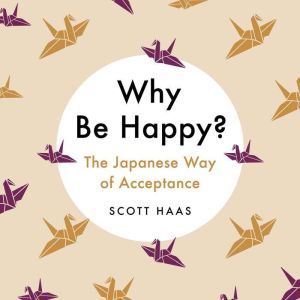

Why Be Happy?
The Japanese Way of Acceptance
Author: Scott Haas
Narrator: Gary Furlong
Unabridged: 5 hr 34 min
Format: Digital Audiobook Download
Publisher: Balance
Published: 07/07/2020
Synopsis
Looking for greater peace and satisfaction? Look no further than the Japanese concept of ukeireru, or acceptance. Psychologist Scott Haas offers an elegant, practical, and life-changing look at ways we can reduce anxiety and stress and increase overall well-being. By learning and practicing ukeireru, you can:Profoundly improve your relationships, with a greater focus on listening, finding commonalities, and intuitingFind calm in ritualizing things such as making coffee, drinking tea, and even having a cocktailEmbrace the importance of baths and napsShow respect for self and others, which has a remarkably calming effect on everyoneLearn to listen more than you talkTidy up your life by downsizing experiences and relationships that offer more stress than solaceCultivate practical ways of dealing with anger, fear, and arguments -- the daily tensions that take up so much of our livesBy practicing acceptance, we learn to pause, take in the situation, and then deciding on a course of action that reframes things. Why Be Happy? Discover a place of contentment and peace in this harried world.


